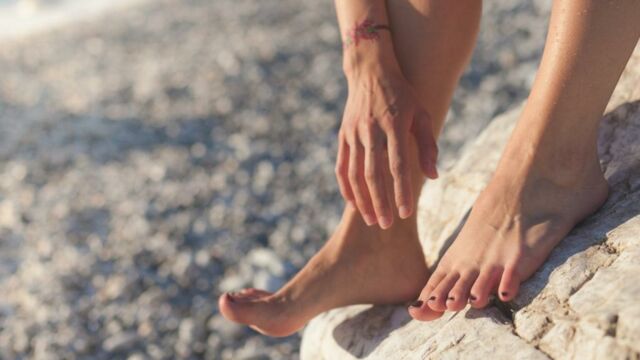The feeling of constantly being pricked by needles is not a very comfortable one, but unfortunately we all experience it from time to time on various parts of our bodies including our arms, feet, legs, hands, buttocks, and sometimes even our heads.
Discover our latest podcast
What is paresthesia?
According to experts at the University of Rochester’s Medical Center, it happens when your nerve gets ‘irritated’ because it’s being blocked by pressure. When a nerve is blocked, it's unable to receive the oxygen, glucose, or blood it needs to function and is unable to send signals to the brain.
Once it's freed, it then starts sending an excess amount of signals into your nervous system. That’s why you may feel a prickling sensationwhenever you cross your legs for too long, or sleep with your arm under your head.
Usually getting pins and needles shouldn’t alarm you, but in a few cases they could be a sign of an underlying neurological condition. You should consult your doctor if your paresthesia is:
- Accompanied by weakness
- Long-lasting
- Severe
- Sudden and linked to slurred speech
How to get rid of pins and needles
For most people, pins and needles will go away in a matter of minutes, but here are some techniques you can use to hasten the process.
As soon as you start feeling numb, make sure you take the pressure off that area of your body. The faster you allow your nerves to resume their functions, the faster your body will return to normal.
According to advice given by experts at Healthline, you should also make sure to move the area of the body that has been affected. If it’s your hands or arms, then clench and unclench your fists to get the blood circulation going. For the feet, make sure you wiggle your toes and do some ankle rotations.















